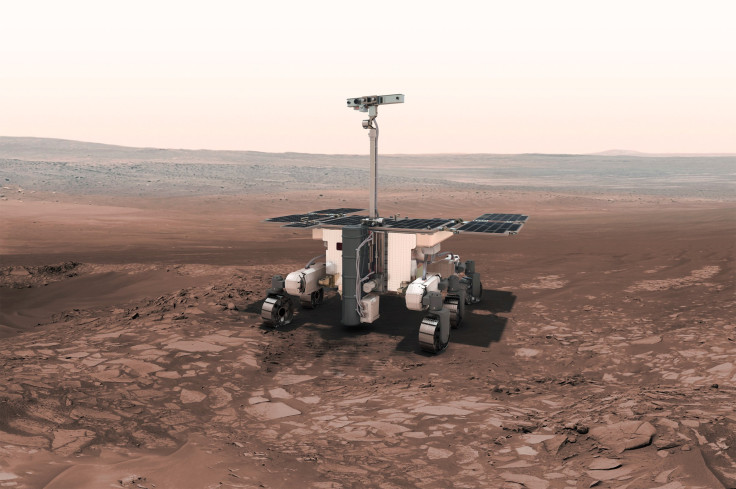ExoMars 2020: European Space Agency Gets Additional $460 Million For Mars Rover Mission

European government officials on Thursday approved the nearly 440 million euros ($464 million) the European Space Agency (ESA) said it needs to complete the second phase of its ExoMars mission.
The Europe-Russia mission, which aims to put a robotic rover on the surface of Mars in 2021, has already been delayed and is facing significant cost overruns. As part of the first phase of the endeavor, completed earlier this year, the ESA and Roscosmos put an orbiter around the red planet, but failed to successfully land a technology demonstration landing module.
“The Agency is encouraged to strive to reap the benefits expected from the significant investments made through the ExoMars programme, including those earmarked for the successful completion of the second ExoMars mission,” European officials said in a resolution adopted after a two-day summit in Lucerne, Switzerland.
Of the additional 440 million euros approved for the ExoMars mission, roughly 100 million euros would be obtained from the ESA’s budget for mandatory activities.
The ESA’s ambitious mission to Mars will consist of a rover and a surface platform, in addition to the Trace Gas Orbiter (TGO) — which is already locked in orbit around the red planet and would serve as a relay module for the 2020 mission.
While the solar-powered rover will perambulate the rocky terrain of Mars, drill through the surface to collect samples, and look for signs of organic material and the possibility of life — extant or extinct — the surface platform will, over the course of one Earth year, investigate the environment at the landing site.
“Nobody else is doing the science that is planned for ExoMars, drilling below the surface of the planet for the first time, below the soil that is irradiated, with a suite of instruments that is actually directly looking for signs of past or present life,” David Parker, ESA’s director of human spaceflight and robotic exploration, told the BBC.
In total, the 22 ESA member states approved 10.3 billion in funding for the agency — slightly less than the 11 billion euros the agency had asked for. In addition to covering its other space activities and programs, the funds would also allow the ESA to continue its participation in International Space Station operations until 2024 — something that the U.S., Russia, Japan and Canada have already agreed to do.
“I’m excited all the International Space Station partners have now joined us in committing to operation of this invaluable resource through at least 2024,” NASA Administrator Charles Bolden said in a statement released Thursday. “The European Space Agency contributions to station are essential, and we look forward to continuing to work with ESA, the Canadian Space Agency, Japan Aerospace Exploration Agency, and Roscosmos for extended operations, and to collaborating with other nations to push the boundaries of human exploration, and extend our reach farther into the solar system as part of the ongoing Journey to Mars.”
© Copyright IBTimes 2024. All rights reserved.






















